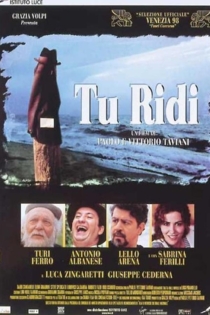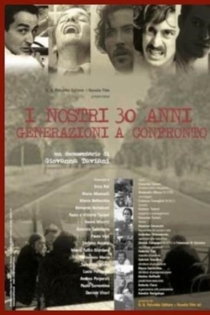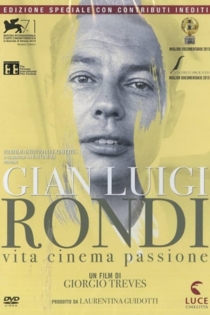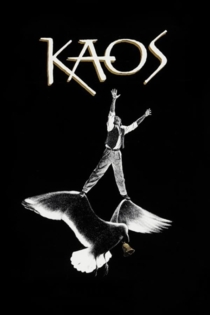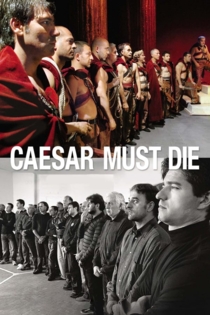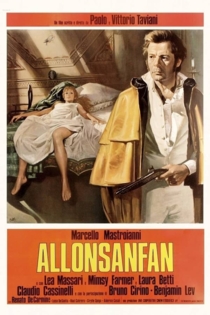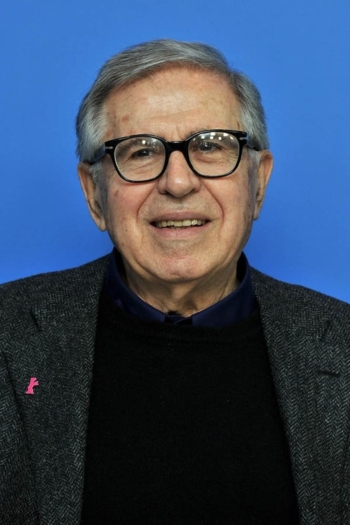
Paolo Taviani
1931 (94 года)At the Cannes Film Festival, the Taviani brothers won the Palme d'Or and the FIPRESCI prize for Padre Padrone in 1977 and the Grand Prix du Jury for La notte di San Lorenzo (The Night of the Shooting Stars, 1982). In 2012 they won the Golden Bear at the Berlin International Film Festival with Caesar Must Die.
Vittorio Taviani died on 15 April 2018 at the age of 88. Both born in San Miniato, Tuscany, Italy, the Taviani brothers began their careers as journalists. In 1960 they came to the world of cinema, directing with Joris Ivens the documentary L'Italia non è un paese povero (Italy is not a poor country). They went on to direct two films with Valentino Orsini, Un uomo da bruciare (A Man to Burn) (1962) and I fuorilegge del matrimonio (Outlaws of Marriage) (1963).
Their first autonomous film was I sovversivi (The Subversives, 1967), with which they anticipated the events of 1968. With actor Gian Maria Volonté they gained attention with Sotto il segno dello scorpione (Under the Sign of Scorpio, (1969) where one can see the echoes of Brecht, Pasolini, and Godard.
In 1971, they co-signed the media campaign against Milan's police commissioner Luigi Calabresi, published in the magazine L'espresso.
The revolutionary theme is present both in San Michele aveva un gallo (1971), an adaptation of Tolstoy's novel The Divine and the Human, a film greatly appreciated by critics, and in the film Allonsanfan (1974), in which Marcello Mastroianni has a role as an ex-revolutionary who has served a long term in prison and now views his idealistic youth in a much more realistic light, and nevertheless gets entangled in a new attempt in which he no longer believes.
Their next film Padre Padrone (1977) (Palme d'Or at the Cannes Film Festival), taken from a novel by Gavino Ledda, speaks of the struggle of a Sardinian shepherd against the cruel rules of his patriarchal society. In Il prato (1979) there are nonrealistic echoes, while La notte di San Lorenzo (The Night of the Shooting Stars, 1982) narrates, in a fairy-tale tone, a marginal event in the days before the end of World War II, in Tuscany, as seen through the eyes of some village people. The film was awarded the Special Jury Award in Cannes.
Kaos (1984)—another literary adaptation—is a poignantly beautiful and poetical film in episodes, taken from Luigi Pirandello's Short Stories for a year. In Il sole anche di notte (1990) the Taviani brothers transposed in 18th century Naples the story from Tolstoy's Father Sergius.
From then onwards, the Tavianis' inspiration proved faltering. Successes like Le affinità elettive, (1996, from Goethe) and an attempt to woo the international audiences like Good morning Babilonia, (1987), on the pioneers of cinema history, alternate with lesser films like Fiorile (1993) and Tu ridi (1996), inspired by the characters and short stories of Pirandello. ...
Source: Article "Paolo and Vittorio Taviani" from Wikipedia in English, licensed under CC-BY-SA 3.0.
Ennio
Giuseppe Tornatore
Ennio Morricone, Wong Kar-wai
A portrait of Ennio Morricone, the most popular and prolific film composer of the 20th century, the one most loved by the international public, a two-time Oscar winner and the author of over five hundred unforgettable scores.
Ennio
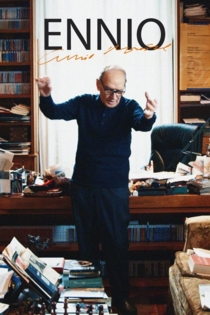
St. Michael Had a Rooster
Paolo Taviani, Vittorio Taviani
Giulio Brogi, Renato Cestiè
Sentenced to life imprisonment for illegal activities, Italian International member Giulio Manieri holds on to his political ideals while struggling against madness in the loneliness of his prison cell.
St. Michael Had a Rooster
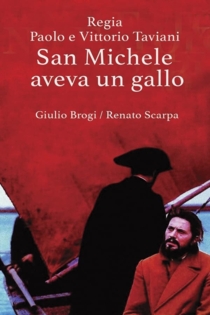
Padre padrone
Paolo Taviani, Vittorio Taviani
Omero Antonutti, Saverio Marconi
The true story of the life of Gavino Ledda, the son of a Sardinian shepherd, and how he managed to escape his harsh, almost barbaric existence by slowly educating himself, despite violent opposition from his brutal father.
Padre Padrone
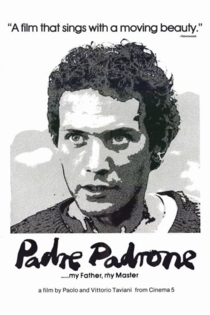
The Night of the Shooting Stars
Paolo Taviani, Vittorio Taviani
Omero Antonutti, Margarita Lozano
The Night of San Lorenzo, the night of the shooting stars, is the night when dreams come true in Italian folklore. In 1944, a group of Italians flee their town after hearing rumours that the Nazis plan to blow it up and that the Americans are about to arrive to liberate them.
The Night of the Shooting Stars
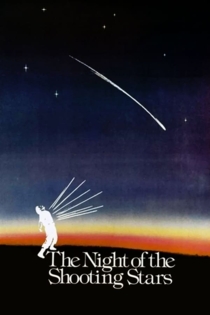
L'Italia non è un paese povero
Paolo Taviani, Joris Ivens
Enrico Maria Salerno
A documentary about Italy's underground oil and metan deposits, sponsored by Italian state-owned oil company, ENI. Pictures of the state-of-the-art oil infrastructure are mixed with others of the traditional way of living of poorer Italian regions.
Italy Is Not a Poor Country
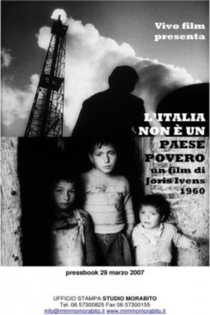
Il sole anche di notte
Paolo Taviani, Vittorio Taviani
Julian Sands, Nastassja Kinski
Based on Leo Tolstoy's novel, Father Sergius, Night Sun stars Julian Sands as Sergio, a nobleman in 18th-century Italy who is expected to marry a duchess, Nastassja Kinski. Upon learning that she was previously the King's mistress, Sergio turns his back on society and becomes a monk. While at the hermitage he tries to resist all sexual temptations before him and soon becomes known as a miracle worker. Eventually he succumbs to a young seductress and knowing he is undeserving of the adulation, leaves the hermitage to travel around as a homeless beggar.
Night Sun
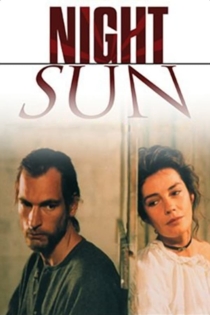
Non eravamo solo... Ladri di biciclette - Il neorealismo
Gianni Bozzacchi
Bernardo Bertolucci, Gabriel García Márquez
This short film tells the story of the most important cinema trend that Italy has ever produced - Neo Realism. Born after the Second World War, this veritable cultural revolution rapidly became a boundless source of inspiration for movie-makers throughout the entire world. Even today it influences those wanting to produce quality movies characterized and identified as Italian products able to be exported as well. It is precisely one of the masters of this unique current rich in different personalities who introduces the story - Carlo Lizzani - whose 'lesson' reconstructs the birth and development of Neorealism in Italy. It combined innovative movie techniques with a new view based on a 'true' interpretation of reality. Due to its high cultural value, this short film was given the highest reknown of the Presidency of the Republic of Italy.
We Weren't Just Bicycle Thieves: Neorealism
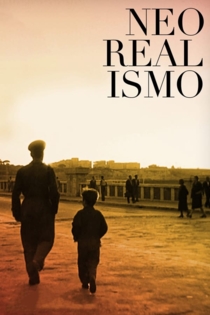
Fiorile
Paolo Taviani, Vittorio Taviani
Claudio Bigagli, Galatea Ranzi
The Benedetti family's wealth comes from gold stolen from the French army during the 18th century. When Jean (Michael Vartan), the lieutenant guarding the coins -- and lover of Elisabette Benedetti (Galatea Ranzi) -- is executed for a crime he did not commit, Elisabette curses the family. Bad luck travels from generation to generation. As the latest Benedettis tell their children about their eccentric grandfather, the children worry that the family curse will be passed on.
Fiorile
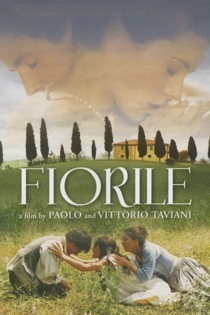
Resurrezione
Paolo Taviani, Vittorio Taviani
Stefania Rocca, Timothy Peach
At the end of the XIX century in Russia, Prince Dimitri Necklivdov is called as a jury-man in a trial. The defendant is Katiuscia Maslova, accused of murdering a merchant in order to rob him. Dimitri recognizes Katiuscia: she was the girl he seduced many years before. Dimitri decides to save her.
Resurrection
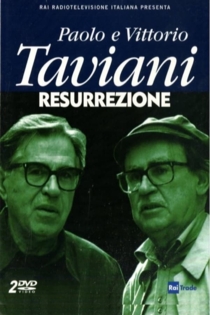
Good Morning, Babylon
Paolo Taviani, Vittorio Taviani
Vincent Spano, Joaquim de Almeida
After the bankruptcy of their father's stonemasonry firm, brothers Nicola and Andrea emigrate to America to restore their fortunes. After many adventures and near-disasters, they end up in Hollywood designing sets for D.W.Griffith and marry beautiful actresses, but tragedy strikes with the arrival of World War I, which finds the brothers fighting on opposite sides...
Good Morning, Babylon
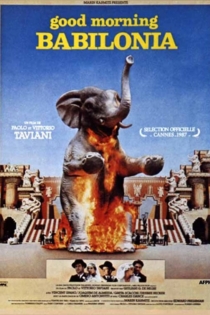
Tu ridi
Paolo Taviani, Vittorio Taviani
Antonio Albanese, Giuseppe Cederna
Two segments: In the first one Felice, a baritone who has had to give up his career because of a heart condition and now works as an accountant at the Opera, inexplicably spends his nights laughing in his sleep. When his best friend, a cripple, takes his life and his wife abandons him Felice decides to die himself. In the second segment two kidnappings in Sicily, the second of which took place a century before the present one, are compared.
You Laugh
